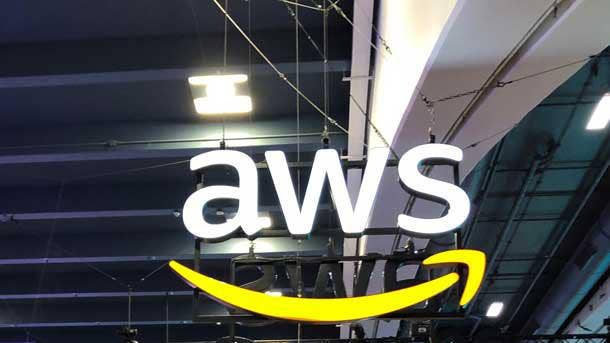5 Things You Need To Know About Rackspace's Onica Acquisition
Rackspace is looking to supercharge its AWS professional services practice with an agreement to buy AWS partner Onica.

Rackspace Adds Onica
There may be no company in the cloud industry that has seen as stark a transformation as Rackspace over the last few years, having pivoted from a colocation and public cloud vendor to a company predominantly focused on offering services that span all major cloud providers.
Now Rackspace is looking to supercharge its AWS professional services practice with an agreement to buy Onica, a fast-growing and highly innovative Amazon partner specializing in cloud-native solutions.
Based in Santa Monica, Calif., Onica, a 2017 spinout from Microsoft partner CorpInfo, will boost Rackspace's already thriving Amazon practice with cutting-edge capabilities around the public cloud leader's big data, machine learning, container, DevOps and Internet-of-Things platforms.
The deal, expected to close in the fourth quarter, is the latest bold move by Rackspace to complement organic growth of its managed cloud portfolio with strategic acquisitions that fill gaps in its portfolio.
Here’s what you need to know about the deal.

Moving On Up The Stack
Rackspace pivoted itself into becoming one of the world's largest managed multi-cloud providers by extending its own services and support prowess into other clouds.
Having established a dominant position in the IaaS arena through organic development and the acquisition of Datapipe, the San Antonio-based managed cloud provider set its sights on moving its practices up the stack.
That process started in May of 2017 (before the Datapipe deal) with the acquisition of TriCore Solutions, a company focused on mission-critical Oracle E-Business Suite and SAP solutions. Rackspace expanded that managed SaaS portfolio last year by buying RelationEdge, laying the foundation for a robust Salesforce practice.
RelationEdge Founder Matt Stoyka, who has since become Rackspace's chief relationship officer, played a large role in selecting Onica as the next acquisition target.
While Onica isn't a traditional SaaS consultancy, its focus on implementing cutting-edge application layer technologies, from containers to machine learning to IoT, puts it in the same vein as the two prior deals, Stoyka told CRN.
"We're the next extension of that strategy," Onica CEO Stephen Garden added.

A Tale Of Two Acquisition Strategies
Rackspace and Onica both rapidly scaled their services practices through strategic acquisitions to seize emerging market opportunities. But their respective inorganic growth strategies were a study in contrasts.
Once Rackspace pivoted toward supporting other cloud providers, it poured fuel on that managed cloud business by acquiring companies that brought under its roof a diverse array of IaaS and SaaS expertise.
Datapipe was an important player in the AWS ecosystem, but also had established a robust Microsoft Azure partnership. TriCore Solutions and RelationEdge added practices around Oracle, SAP and Salesforce.
Unlike Rackspace, Onica kept a narrow and deep focus on beefing up its AWS firepower.
Soon after being spun out of CorpInfo with $20 million in funding from Sunstone Partners, Onica bought Sturdy Networks and NetBrains, two fellow AWS consultancies that effectively operated as one company. In August 2018, Onica purchased TriNimbus Technologies.
While Onica, NetBrains, Sturdy and TriNimbus all focused on AWS, they mastered different market segments.
Sturdy and NetBrains added app development and IoT capabilities, enabling Onica to deliver infrastructure, cloud application and data engineering solutions. And TriNimbus extended the business into the important Canadian market, which was a major draw for Rackspace.

AWS Superpower
Rackspace's deal for Datapipe in 2017, the largest acquisition in its history, established a managed services powerhouse in the AWS ecosystem.
While Onica was born in the belly of a Microsoft standout, when it was spun out of CorpInfo as an independent AWS consultancy, it resisted calls for a multi-cloud practice and rapidly climbed to its own position of prominence among Amazon partners.
Once the two companies merge, as expected by the fourth quarter, Rackspace will become a uniquely dominant force in Amazon's partner network by melding its leading managed services practice with a robust professional services division stocked with Onica's expertise in cloud-native application development and implementation.

Microsoft And Google Signals
It's easy to forget these days, but Rackspace shocked the industry in 2015 when it struck a partnership with Microsoft to offer its Fanatical Support around Azure.
A deal with Amazon Web Services followed a few months later, and Rackspace completed the hyper-scale trifecta in March of 2017 when it partnered with Google Cloud.
The acquisitions of Datapipe and now Onica have shot Rackspace to the top of the AWS services ecosystem. But unlike Onica, Rackspace's ambitions go far beyond being a single cloud shop.
Despite its AWS focus, Onica can provide a blueprint for Rackspace to extend a cloud-native professional services practice to Azure and Google.
"We can learn from this and potentially extend that to other hyper-scalers," Matt Stoyka, Rackspace's chief relationships officer, said of the deal.
"If you look at where the market is, it is a multi-cloud and multi-hybrid cloud market, and we believe that is going to continue," Stoyka told CRN.

Lessons From Onica's Single Cloud Surge
Onica has only operated as an independent entity for a couple years. But the company's exclusive AWS practice has surged since it was spun out of CorpInfo in 2017 with $20 million in financing from Sunstone Partners.
CRN clocked Onica as the industry's fifth fastest growing solution provider on the 2019 Fast Growth 150. That sky-high position was earned with more than 800 percent growth from 2016 to 2018.
As many solution providers look to broaden partnerships and offer multi-cloud services, Onica's breakneck growth illustrates another path to success through deep expertise around a single provider.
Onica CEO Stephen Garden (pictured) told CRN that being laser-focused on Amazon has been an important differentiator in the channel, as the rapid pace at which technology evolves makes it increasingly difficult to maintain mastery around multiple platforms.
Brendan Caulfield, cofounder at ServerCentral Turing Group, a cloud consultancy competing with Rackspace and Onica, sees Onica's strategy as one that's especially attractive these days in the M&A market.
"Many of the firms operating in this space were founded to provide a very specific set of services and many traditional technology firms have struggled to build these capabilities organically," Caulfield told CRN.
There's a talent shortfall in the market that specialists like Onica know how to fill.
"Some of the born-in-the-cloud firms have built the training and onboarding processes to bring talent up-to-speed much more efficiently than their legacy counterparts," Caulfield said.